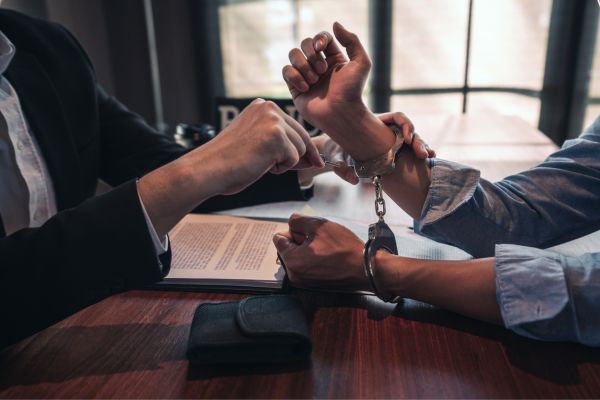Understanding the Importance of Criminal Defense
When a person is accused of a crime, the implications extend beyond the courtroom. Criminal charges can disrupt lives, tarnish reputations, and jeopardize future opportunities. That is why a strong criminal defense is not only a legal necessity but a fundamental safeguard for personal freedom. Navigating the criminal justice system without proper legal representation can lead to devastating consequences, even for the innocent. Hence, understanding what criminal defense entails and how it can protect your rights is essential for anyone facing legal challenges.
What is Criminal Defense?
Criminal defense refers to the strategic legal methods used by defense attorneys to challenge the validity and sufficiency of the prosecution’s case. It involves analyzing the evidence, questioning witnesses, and ensuring that the defendant’s constitutional rights are upheld at every stage of the judicial process. Criminal defense is not about evading justice; rather, it is about ensuring justice is served fairly and impartially.
Defense attorneys play a critical role in this process. They are tasked with investigating the circumstances of the alleged offense, identifying procedural errors, and presenting mitigating factors that could influence sentencing. In doing so, they balance the scales of justice and help prevent wrongful convictions.
Your Rights in a Criminal Case
One of the pillars of a criminal defense is the protection of the defendant’s legal rights. From the moment of arrest, individuals are entitled to a series of constitutional protections designed to ensure fairness in legal proceedings. The right to remain silent, the right to an attorney, and the right to a fair and speedy trial are just a few of the cornerstones that safeguard individuals against misuse of power.
A skilled criminal defense attorney leverages these rights to build a solid case. For example, any evidence obtained in violation of the Fourth Amendment, which protects against unlawful searches and seizures, can be deemed inadmissible. Similarly, coerced confessions or failure to inform a suspect of their Miranda rights can invalidate critical aspects of the prosecution’s argument.
Common Criminal Defense Strategies
Criminal defense strategies vary depending on the nature of the charges and the available evidence. One common approach is asserting innocence by demonstrating an alibi or presenting evidence that contradicts the prosecution’s claims. Another method involves challenging the credibility of witnesses or the reliability of forensic evidence.
In some cases, a defense attorney may focus on procedural errors committed by law enforcement or the prosecution. This could include illegal searches, mishandled evidence, or violations of due process. In other instances, the strategy may involve plea negotiations to reduce charges or minimize potential penalties.
Self-defense, insanity, entrapment, and intoxication are also recognized as affirmative defenses in many jurisdictions. Each of these arguments requires substantial evidence and expert testimony to be successful. Therefore, the role of the defense attorney in crafting and executing these strategies cannot be overstated.
Choosing the Right Criminal Defense Attorney
Selecting a qualified criminal defense attorney is one of the most important decisions a defendant will make. The attorney’s experience, reputation, and familiarity with local laws can significantly influence the outcome of the case. An effective attorney not only understands the legal intricacies of criminal law but also possesses strong negotiation and courtroom skills.
Moreover, communication is key. A good defense attorney keeps their client informed, provides honest assessments, and develops a clear defense plan tailored to the specific case. Trust and transparency between the defendant and their legal counsel form the foundation of a successful defense.
The Role of Evidence in Criminal Defense
Evidence is the lifeblood of any criminal case. Whether it supports the prosecution or the defense, its interpretation can determine guilt or innocence. In criminal defense, attorneys meticulously review police reports, witness statements, surveillance footage, and forensic analyses to identify inconsistencies or gaps in the prosecution’s narrative.
Evidence can also be used proactively by the defense to construct alternative theories or highlight reasonable doubt. For instance, DNA evidence might exonerate a defendant, while video footage could corroborate an alibi. Additionally, expert witnesses such as forensic scientists, medical professionals, or psychologists often play a crucial role in explaining complex evidence to the jury.
The Trial Process and Beyond
A criminal trial typically begins with jury selection, followed by opening statements, presentation of evidence, cross-examinations, and closing arguments. Throughout this process, the defense must remain vigilant in protecting the defendant’s rights and challenging any weaknesses in the prosecution’s case.
If the trial results in a conviction, the defense attorney may pursue an appeal, arguing that legal errors affected the trial’s outcome. Post-conviction relief is another avenue that may be available, particularly if new evidence emerges or if there is proof of ineffective assistance of counsel.
Why Criminal Defense is Vital to Justice
The criminal justice system is designed to hold individuals accountable while also preserving the presumption of innocence. Criminal defense serves as a critical check on the power of the state, ensuring that prosecutions are based on credible evidence and legal procedures. Without effective defense, the risk of wrongful convictions would significantly increase, undermining public confidence in the legal system.
Furthermore, criminal defense promotes the humane treatment of defendants and advocates for proportionate sentencing. It ensures that mitigating factors such as mental health issues, lack of prior offenses, or circumstances surrounding the alleged crime are considered during the adjudication process.
Conclusion: Protecting Your Future Through Criminal Defense
Facing criminal charges can be one of the most overwhelming experiences of a person’s life. However, with the right legal representation and a well-crafted criminal defense, individuals can fight to protect their freedom, reputation, and future. Understanding your rights, knowing what to expect, and working with a skilled defense attorney can make all the difference in the outcome of your case.
Ultimately, criminal defense is not just a legal concept—it is a cornerstone of justice. It upholds the principle that everyone deserves a fair trial and the opportunity to defend themselves against accusations. In a system that demands accountability, criminal defense ensures that fairness and truth prevail.

